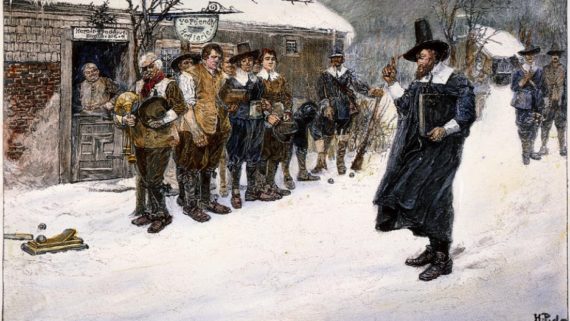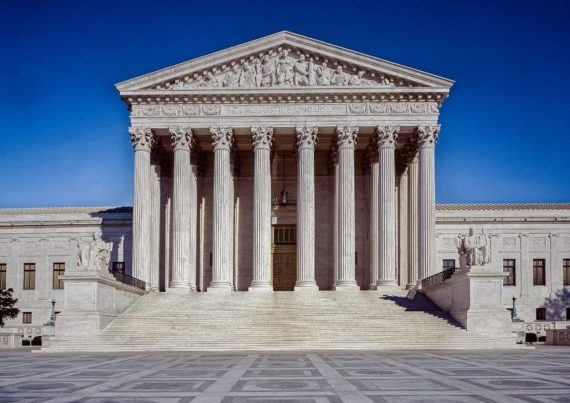
“Puritanism: The haunting fear that someone, somewhere, may be happy.” – H. L. Mencken
“Let any man of contrary opinion open his mouth to persuade them [the Puritans], they close up their ears, his reasons they weigh not . . . . They are impermeable to argument and have their answers well drilled.” – Richard Hooker, Of the Lawes of Ecclesiastical Politie, 1594
Three great tragedies fell upon the English speaking world in the 1600s: the failure of the Cavaliers to destroy Puritanism, the failure of the Irish to destroy Puritanism, and the failure of Metacom, also known as King Philip, and his allies to eradicate the Puritan presence in North America. The Catholic leaders of Maryland welcomed persecuted Puritan refugees from Virginia, only to have their guests over throw the Catholic aristocracy in a coup and repeal the Act of Toleration. There was a fleeting hope in the late seventeenth century that Puritanism in North America would implode and destroy itself from within. It seems that many second generation Puritans in Massachusetts Bay Colony did not wish to become members of the elect. To become one of the elect, a person submitted themselves to an interrogation, often days long,in an effort to convince the already recognized elect that, yes, you were one of them. The invasive process pried into every hidden aspect of one’s beliefs, actions, and character. It made the most stringent scrutinies of Carthusian monks seem a pleasant afternoon pig-picking with a bit of light gossip. Many of the children of the first generation wanted no part, and their parents were more than happy to see the ungrateful and unelect brats suffer the unending torments of Hell. Until, that is, the brats had children, making the first generation Puritans grandparents, who now worried that their unbaptized grandchildren would be damned.
That changed things, and soon one could become a partial elect via the Halfway Covenant. Supposedly, God had already ordained the Whole Hog Covenant, though I have my doubts about this. But Puritans, being pure and elect, decided to improve upon what they believed to be God’s plan. So the children of baptized, non-members of the Puritan church could be baptized, and all was well. Except it wasn’t. It seems that revising and improving upon the works and decrees of the Almighty is habit forming, and pretty soon you do not need an Almighty because you are the Almighty. And thus our Puritan became a Yankee, and though he worshiped Mammon, he never stopped being a Puritan.
Which brings us to Christmas. During England’s Dark Ages, 1649-1660, the Puritans were heaven bent on outlawing fun. No theaters, no chocolate houses, no this, no that, and certainly no Christmas. True,the most sour and Jansenistical Catholic might view raucous celebrations of Christmas as inappropriate and occasions of sin, but only a Puritan would view the celebration of the birth of Our Savior as ipso facto sinful. In the old days, Puritans argued that the holiday encouraged the worst appetites and impulses of the “lower sort,” and was an idolatrous, papist plot to boot. Today’s Neo-Puritan is all in favor of appealing to appetites and impulses of every sort, but he is rather keen about evangelizing the masses in his own special brand of intolerant tolerance. Which suggests that the good Reverend Hooker of the Church of England got it right when he described the Puritans as gnostics. Hooker, a gentle sort with a strong Thomisticbent, spent innumerable hours attempting to engage the Puritans of his day in discussion and debate, all for naught. The Puritans had no need of discussion, debate, and certainly not instruction from the mind of the learned Hooker. No, they already knew! And once they got in to the habit of knowing better than God, they were more than happy to re-arrange the natural and divine order of things to suit their ever shifting allegiances and tastes.
So now the playful old standard, “Baby It’s Cold Outside,” is deemed offensive, while a certain Ms. Cardi B. is deemed “brilliant” and “creative” for crooning (or is it moaning?) about various and sundry parts of the female anatomy, on a family “holiday” television show. One might be tempted to call this a form of hypocrisy, but hypocrisy requires one to know and preach the good, but do otherwise. I am not sure that the Neo-Puritan is even capable of knowing the good. Nevertheless, the Neo-Puritans do view themselves as great social and cultural sanitizers, having now consigned “Merry Christmas” to the dustbin of offensiveness, they have turned the Holy Family into the Holy Migrants, they have decreed the term “White Christmas” as racist, and the list goes on and on. And on what authority do they do these things? Being gnostics, I suppose they are the only ones who know.
Why do the Neo-Puritans hate Christmas? They hate Christmas for many of the same reasons that they hate the South. At its essence, Christmas is the celebration of humanity’s need for a savior and God’s generous response in sending his only Son to share our nature, and redeem us through his sacrifice on the Cross. Thus the term Christmas, the Mass of Christ. All in all, pace my Baptist friends,the great feast is a bit more than just Jesus’s birthday, though the Neo-Puritans would still hate Christmas if it was just that. The feast of Christmas underscores human limitation and sinfulness, and God’s generous response to this human reality. As Saint Paul wrote in the eighth chapter of Romans, “For the expectation of the creature waiteth for the revelation of the sons of God.” (Vulgate) That is, all of God’s creation awaits the redemption of Christ which is the great promise of Christmas to those who serve Him. Neo-Puritans despise such talk of sin, human limits, divine revelation,and redemption.
Southerners, in general, have always possessed a clearer understanding of this reality. The Southerner did not go about seeking to build utopias, nor did he one day worship God, the next day Mammon, and the next day transgenderism. Like Adam of old, the traditional Southerner understood boundaries, limits, the important labor of ameliorating evil, and man’s helplessness in opposing evil without the grace of God. Nor did he lower himself to satanic depths by deciding that he knew better than God when it came to matters of good and evil. And he understood the very real consequences of sin. That is why Southerners viewed their country as a garden, and not some abstract planned, gated community called The City on the Hill. The garden was not always well-tended. So one goes out and pulls weeds, but one does not play the foolish game of calling weeds cotton and cotton weeds.
So the traditional Southern Christmas is much more than a “happy holiday,” it is a joyous celebration that despite our sins and limitations, God so loved us he sent his only Son. This joy is present in the Masses and services of the holy feast. The super abundance of this divine joy spills over into Christmas morning hunts, family reunions, gift giving, stuffed hams and sweet potato casserole, and the singing of carols. It is neither a White Christmas nor a “winter holiday;” it is what the great South Carolina author, William Gilmore Simms described as a Golden Christmas. A Merry Christmas of hope and joy found under blue skies, soft southern breezes, and a warm sun. And as such it stands as a powerful rebuke to all dour, gloomy, and self-righteous Puritans, past and present.






